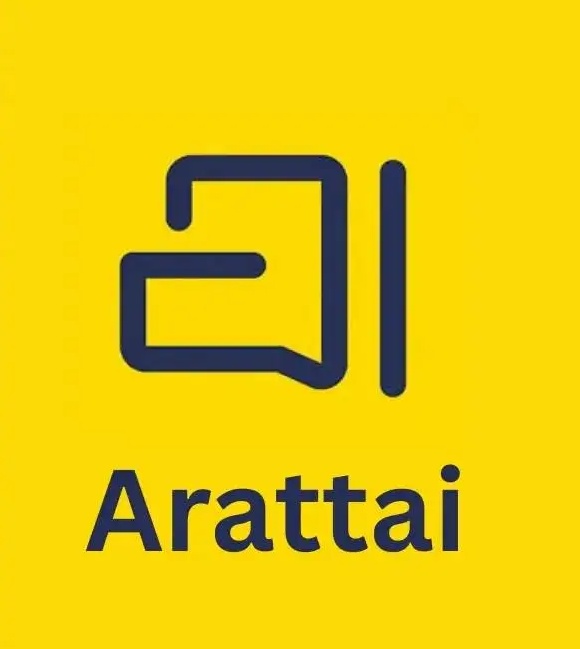With Zoho launching its messaging app under the name ‘Arattai’, it became more than just another app, it emerged as an effective alternative to WhatsApp. People across India welcomed it with unprecedented enthusiasm and pride, leading to millions of downloads across multiple platforms.
According to the company, Arattai has touched 7.5 million overall downloads (7.5 million accounts registered overall) as on October 3, 2025, including Google’s Play Store and Apple’s App Store. Zoho founder Sridhar Vembu in an X post on Sunday detailed the homegrown engineering frameworks that run Arattai.
However, many eyebrows were raised when people heard the name ‘Arattai’, which means ‘chat or small talk’ in Tamil, as it was unfamiliar outside the state of Tamil Nadu. A majority of Indians found it difficult to relate to the name, not just Hindi speakers, but even people from neighbouring states like Kerala.
There is a Malayalam word similar to the Tamil word Arattai (அரட்டை). In the ‘Dhatupatha’ section (dealing with root words) of L. A. Varma’s book “Arya-Dravida Bhashakalude Parasparabandham” (The Relationship between Aryan and Dravidian Languages), written about a century ago, the connection between these words is clearly explained.
In his book, L. A. Varma gives ‘alattu’ as the Malayalam equivalent of the Sanskrit root ‘lat’. In Malayalam, Alattŭ means “to repeat again and again like children.” Its present-day meaning is “to annoy someone by repeating the same thing like a child.”

In Sanskrit, the corresponding root is laṭ–laḍa, meaning “childish speech.” Laṭyati means “to talk like children.” Thus:
Laṭ = Alaṭ = Alattŭ = Arattai.
In Hindi too, the sound raṭ carries the same sense. रट्टा मारना (raṭṭā mārnā) means “to memorize by repeating again and again.”
Now, let’s see how Laṭ/Raṭ became Alaṭṭŭ and Arattai. In Sanskrit, this phonological change is called ‘Apabramsa’. The word “Apabhramsa” (अपरं भंश) literally means “falling away” or “degenerated” in Sanskrit, reflecting its status as a “corrupt” or “ungrammatical” form of language by ancient grammarians.
Sanskrit scholar Acharya (Dr.) G. Anandaraj explains in his Facebook post how Sanskrit sounds transformed through Apabhramsha into Malayalam and Tamil forms.
According to Acharya G. Anandaraj:
“Arattai comes from the root ‘Raṭa’ (रटँ परिभाषणे — to speak repeatedly, to recite, to say well…). In Tamil phonology, words cannot begin with ‘ra’ (रेफ) or ‘la’ clusters. Therefore:
‘Rāja’ → Araca,
‘Rākṣasa’ → Arakka,
‘Raṭṭa’ → Arattā.
To indicate the feminine form, the ending -ai is added — Kalā → Kalai, Mālā → Mālai. Similarly, Raṭṭā → Arattai.
Now Arattai means conversation, gossip, chat, or friendly talk.
Tamil: அரட்டை (Arattai)
Hindi: रट्टा (Raṭṭā, as in रट्टा मारना)
English: Rote (cognate)”
The word ‘Arattai’ beautifully captures the shared linguistic lineage of Bharat. It is, in fact, a living testimony to the evolution of words from Sanskrit to Prakrit, to Apabhramsha, and finally to the so-called Dravidian languages.
The etymological exploration of the word brings to the fore the linguistic unity of Bharat, transcending all divisive narratives. Arattai is no longer an unfamiliar term; it has transcended regional boundaries and emerged as a pan-Indian word with a shared and familiar meaning.











Discussion about this post